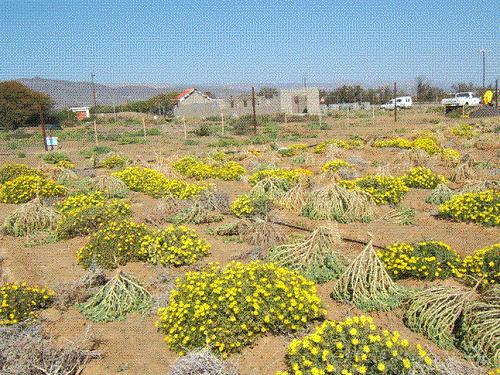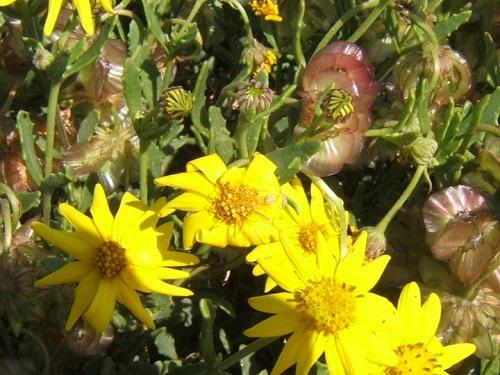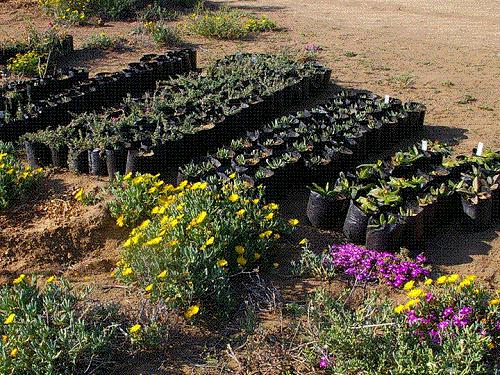Suzanne Jane Milton-Dean
Other projects
16 Oct 2009
"Renu-Karoo": Developing Indigenous Seed Orchards and Local Skills to Restore Mining and Grazing Damage in Arid Karoo Rangeland II
7 Jun 2010
"Renu Karoo": Developing Indigenous Seed Orchards and Local Skills to Restore Mining and Grazing Damage in Arid Karoo Rangeland III
25 Jul 2012
"Renu-Karoo": Developing Indigenous Seed Orchards and Local Skills to Restore Mining and Grazing Damage in Arid Karoo Rangeland IV
The project will train and employ local people to collect and grow seeds of indigenous plants for use in ecological restoration in arid Karoo rangeland damaged by over-grazing or mining.

Seed orchard.
The Renu-Karoo project aims to make ecological restoration with locally indigenous plants a sought-after service in the Central Karoo, thereby sustaining ecological services and creating employment. Our broader vision is to facilitate a network of small businesses run by rural people that collect and distribute indigenous seed appropriate for restoration of local vegetation types. The project will contribute to the conservation of natural ecosystems and to socio-economic development in a region where only 40% of adults are employed.

Tripteris seed crop.
With the assistance of the Rufford Small Grant, Renu-Karoo will initiate four projects in the village of Prince Albert: collection of indigenous seed from roadsides, the establishment of an indigenous seed orchard, production of indigenous plants in a nursery, and the establishment of restoration field trials. All aspects will involve the training and employment of local people.

Renu-Karoo nursery.
A wide range of wild seeds will be hand collected from along ungrazed roadsides and private nature reserves with landowner and conservation agency permission. Staff will be trained to collect only a proportion of the seeds from any one plant so as to minimize negative effects on wild plant populations. So as to minimize risk of genetic pollution, we will market the seeds within the geographical range of the species or subspecies, as well as collaborating to investigate the genetic variability of the most popular forage plant species.
The pilot seed orchard will be established on two hectares of land 3 km from the sub-economic housing area in the poorer part of the village of Prince Albert. The seed orchard is not a substitute for wild seed collection but will buffer fluctuations in seed availability. Assuming that we can establish 10,000 plants/ha and use occasional flood irrigation to produce two seed crops annually, the orchard should yield about 1000 kg/ha of seeds. The successful establishment of the seed orchard will depend upon irrigation, which in turn will entail the pumping of water from an underground source (borehole), water storage, piping of water over a distance of 300 m, construction of a shed to protect the pump, seeds and equipment from vandalism, labour-intensive flood irrigation and weeding.
Initially only three indigenous forage plant species will be sown in the orchard, but nursery trials conducted at the same time should expand the range. Developing a small nursery at the seed orchard site will help us to gain experience in the germination, propagation and translocation of a range of indigenous plant species.
Demonstration restoration trials will be set up on communal grazing land and on a disused gravel mine to train staff, to learn about restoration techniques, and to serve as a discussion and learning forum for local farmers and for schools and students. Through support from the Plant Conservation Unit of the University of Cape Town we will involve students and local field assistants in this restoration research.